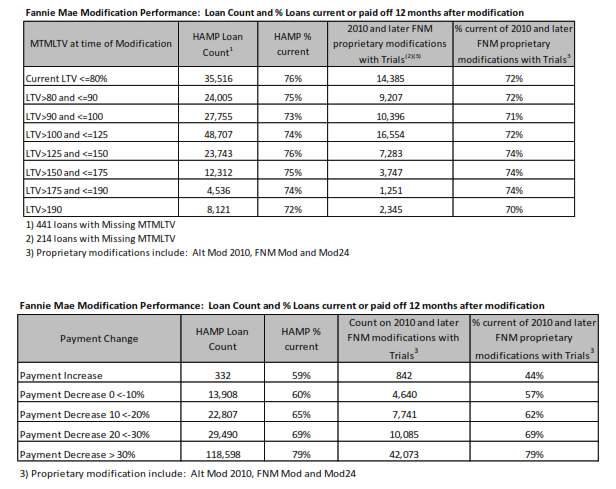Blog

FHA: Further Premium Increases a Possibility
Housing and UrbanrnDevelopment Secretary Shaun Donovan told a Congressional hearing on “Perspectivesrnon the Health of the FHA Single-family Insurance Fund” this morning that FHArnmay need to raise its premiums for some borrowers if economic conditionsrnworsen.</p
The Secretary saidrnthat any negative changes in 2012 that eroded the value of the FHA’s portfoliornby anything more than $7 billion would require further steps to shore up FHA’srncash reserve. An audit of the agencyrnreleased on November 15 showed that FHA’s reserves had fallen 45 percent overrnthe last year to $2.6 billion. FHA is mandated by Congress to maintain a minimum balance (the ratio ofrneconomic value to insurance-in-force) in the Fund of 2 percent. The audit found the current reserves are nowrnat 0.24 percent. The Fund first fellrnbelow the required minimum in 2009 and FHA took a number of steps to reduce itsrnrisk and bolster the fund including increasing both upfront and annual premiumsrnfor FHA guarantees earlier this year.</p
“While the fund has remainedrnpositive,” Donovan said, “we are keenly aware of the importance of remaining vigilantrnto the risks the agency faces and will continue to take the actions necessaryrnto protect the fund and taxpayers.”</p
Mathew J. Sciré, FHA’s Director of Financial Markets and CommunityrnInvestment used a summary of two reports on FHA’s oversight capability and on the condition of thernMutual Mortgage Insurance Fund conducted by the Government AccountabilityrnOffice in his testimony before the committee. rnThe reports pointed to some of the difficulties FHA has confronted inrnrighting the condition of the Fund.</p
While the fund, for the third consecutive year, hasrnnot met the statutory minimum because of higher-than-expected defaults, claims,rnand losses, at the same time, the other component of the ratio, the amount ofrninsurance in force, has grown rapidly. rnThe Fund’s condition has also worsened from a budgetary perspective,rnwith balances in its capital reserve account reaching new lows. If the account were depleted, FHA wouldrnrequire more funds to help cover costs on insurance issued to date.</p
The report says that, whilernFHA has taken necessary steps to improve the Fund’s financial condition, it hasrnnot yet addressed GAO’s 2010 recommendation for improving the reliability ofrnits estimates, continuing to rely on a single economic forecast that does notrnfully account for house price and interest rate variability. What is needed to improve the reliability ofrnits capital ratio estimates is an approach that would simulate hundreds of pathsrnthat the two variables might follow. </p
For example, FHA’srnlatest report to Congress sets forth a scenario where, if a decline in housernprices in 2012 matched that in 2011, new lows would not generate sufficient netrnreceipts to offset any potential decline in the value of the current portfoliornand would necessitate assistance from the Department of the Treasury. If prices should decline by 13.7 percent inrn2011 rather than the 5.6 percent assumed in the forecast FHA might require $13rnbillion in Treasury assistance.</p
FHA has hired a consultant to recommendrnbest practices and plans to charter committees to evaluate risks atrnenterprise-wide and programmatic levels and has taken other steps to evaluaternrisks. However FHA lacks assurance thatrnit has identified all risks. Further,rnhuman capital presents other challenges; the agency has not created arnsystematic workforce plan to identify critical skills. This is of particular urgency as FHA isrnfacing the retirement of a high percentage of its staff in the near term. </p
In addition, contrary to HUD guidance,rnthe Single Family Housing unit has not conducted an annual systematic review ofrnrisks to its program since 2009 and administrative functions and currentrnassessment efforts do not include procedures for anticipating potential risks presentedrnby changing conditions.</p
Henry V. Cunningham Jr., a member of thernMortgage Bankers Association (MBA) Board of Directors also testified before therncommittee. He told the members the FHArnis at a crossroads. Once consideredrnirrelevant, the agency is now providing much-needed liquidity as privaterncapital has taken a “prolonged retreat. rnCunningham said “I think it is fair to say that the housing recovery,rnalthough fragile, would not have taken place without FHA.”</p
The agency’s single family programs,rnhowever, Cunningham said, have not been immune to the disruptions that havernroiled the market. He pointed to stepsrnthat both Congress and FHA had put in place to better allow the agency tornmanage its risk exposure including the termination of the failed seller-fundedrndownpayment assistance programs as well as raising the premiums and increasingrnthe credit requirements to qualify for the lowest levels of downpayment. </p
Cunninghamrnsaid that while these steps have proven successful, FHA is not out of thernwoods. One thing that needs to be done is “getting the QualifiedrnResidential Mortgage (QRM) rule right. Asrnit’s currently proposed, the rule would require a 20 percent downpayment tornobtain a QRM, while FHA requires just 3.5 percent.” This appears to conflict directly withrnefforts by Congress and the administration to reform the housing financernsystem, making it more difficult for private capital to reenter the market. </p
There isrnalso a need to revitalize the secondary mortgage market, he said. He referred to a plan put forward by MBA suggestingrna framework for a limited, clearly defined government role in the single andrnmultifamily mortgage markets.
All Content Copyright © 2003 – 2009 Brown House Media, Inc. All Rights Reserved.nReproduction in any form without permission of MortgageNewsDaily.com is prohibited.
Latest Articles
By John Gittelsohn August 24, 2020, 4:00 AM PDT Some of the largest real estate investors are walking away from Read More...
Late-Stage Delinquencies are SurgingAug 21 2020, 11:59AM Like the report from Black Knight earlier today, the second quarter National Delinquency Survey from the Read More...
Published by the Federal Reserve Bank of San FranciscoIt was recently published by the Federal Reserve Bank of San Francisco, which is about as official as you can Read More...


Comments
Leave a Comment